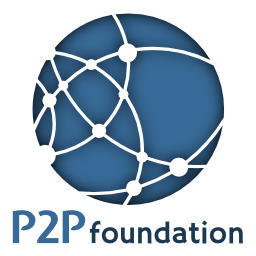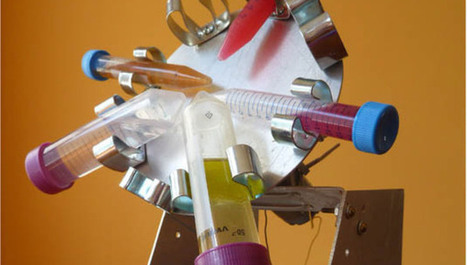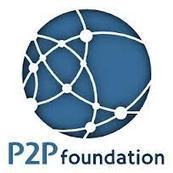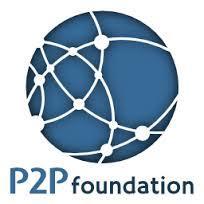 Your new post is loading...
Extracted from an article by Nikos A. Salingaros. PAVEMENTS AND HIERARCHY Architecture has in the past felt a need for pavements that are either patterned, or that embody figurative art. Our perception of space is founded on a connection with the ground via design. In creating an artificial built environment to house themselves and their... Continue reading →
A discussion on the weaving of science and commons: what's public, what's private and the ways we understand, produce and socialize science.
In order to set up a laboratory in a garage, people depend on a multitude of objects, networks, and people. They heavily depend on other people interested in do-it-yourself biology, they rely on scientific institutions (even if indirectly), they rely on the sharing of information, on the circulation of objects, on Internet platforms, on emails, on donations, etc. In short, people who want to practice do-it-yourself biology need to tap into these emerging and open collectives of people, ideas and objects that are currently materialising around the notions of garage biology, DIY biology, biohacking, etc. These citizen biotech-economies are to be open, collective, distributed, and accessible.
Editors note: This essay, written by one of our magazine editors, articulates why scientific thinking is an important tool for individuals and groups hoping to do something about the havoc industry has wrought. Several times it mentions a “revolutionary ecological analysis,” a reference to the budding Wildist movement that is working for the end of industry and toward a wild earth. The Wildernist is part of The Wildist Network.
Today, the atmosphere contains 5 Gt methane. An estimate estimates that around 50 gigatonnes of methane might be about to be released in the Arctic, ie, a tenfold increase. Several thousand Gt is stored in the Arctic permafrost, in the East Siberian Arctic Shelf alone lies the 500 – 5000 Gt methane.
Many scientists around the world lack laboratory equipment. An initiative is now enabling them to build their own.
Open access delivered by journals is called “gold” open access and open access delivered by repositories is called “green” open access. The myth asserts that all open access is gold , even for peer-reviewed articles. It has been false since the birth of open access, and yet it remains a tenacious and widespread misconception. Today most open access in medicine and biomedicine is gold, but in every other field it’s mostly green.
Unlike businesses and politicians, who have been forced by an always-on media to react to every bump in the road, science must take the long view. By engaging this discipline, science – as well as the technologies it inspires – stands a chance of reclaiming its place as a deliberate inquiry, capable of helping us avoid crises instead of just fixing them.”
Architect, scientist, and writer Christopher Alexander is one of the most remarkable thinkers and makers of our time. His many books include A Pattern Language (1977), The Timeless Way of Building (1979), and A Foreshadowing of Twenty-First Century Art: The Color and Geometry of Very Early Turkish Carpets (1993). This essay is his recent effort to distill the major discoveries in his masterful four-volume The Nature of Order (2002-2005), published by the Center for Environmental Structure in Berkeley, CA. He wishes to thank Maggie Alexander and Randy Schmidt for help in editing this essay. © 2007 Christopher Alexander. www.patternlanguage.com.
“The Open Science Federation is a nonprofit alliance working to improve the conduct and communication of science. We are scientists and citizen scientists, writers, journalists, and educators, and makers of and advocates for Open Data, Open Access, and Open Source and Standards.
“Take Synthetic biology and turn it from where it is now the purview of big corporates and academia and turn it into a fertile field for entrepreneurship and particularly interested in an Open Source way. A lot have people have told me that they consider, they are concerned about open source and letting this technology out into the hands of people, my retort to that is that Open Source systems tend to be more virus resistent in the software world than closed source systems and I believe that if we are really truly to be protected we need the most number of people to understand this technology and to be able to respond to whatever comes up” – Bill Liao www.sosventures.com/
“It is a basic how to manual for young faculty and I am not exaggerating on the cost savings – for example to outfit an undergrad optics lab the costs drop from $15,000 to about $500 for equipment of equal performance. Research grade equipment cost savings are even more substantial. As a scientist and a libre advocate I really want to see this idea spread as it will create a positive feedback loop.” – Joshua Pearce.
One of the threads that I have developed in these first five chapters, and will continue to develop over the next several months with the remaining chapters is an understanding of what a full-fledged optical network based information and communication technologies ecosystem looks like in the Netherlands and should look like in the USA. It is time to make more people aware of what is happening and the possibilities inherent in what it can enable within SURFnet and the GLIF and by Internet2 in the United States.
|
One of the biggest obstacles to getting into biology, particularly genetics and synthetic biology, is the cost of lab equipment.
Excerpted from Dan McQuillan: “There are interesting weaknesses at the core of scientific hegemony. While most scientists choose to present their practice publicly as an infallible machine for the production of truths, the opinions behind the curtain are far more mixed, and for good reason. Even hard science is not immune to distortion by group-think …
“Futuristic accumulation is the commodification of publicly created scientific knowledge, which via copyright and patent, is privatized as intellectual property for the extraction of monopolistic technological rents. Its central site is the research university, whose entrainment to business gradually evolved over the late nineteenth and twentieth centuries in both Europe and North America but reached a watershed in the United States’ mobilization of university knowledge for atomic weapons, cryptography, ballistics and military projects by the United States during the Second World War. This process, intensified in the Cold War, directly linked academy and industry.
“People centered” means that control of infrastructure, access, distribution, resources, and co-governance are now on the scale of the individual person. When an individual person with this empowerment reaches their individual carrying capacity to operate, they will tend to reach out to others who are operating like them, and a connection-based network will emerge. Economic development here targets individuals operating as self-employed independents who network together. Independents, small businesses, community groups, working together, with government, higher education, and larger business are the new economic driver. The more control people have an on individual scale of infrastructure, access, distribution, resources, and governance, *and* the more connectivity there is between those people, the that more growth happens in “people centered economic development”. When control of infrastructure, access, distribution, resources, and co-governance are now on the scale of the individual person, a new way of coopertive co-managing of existing resources, and surpluses of production tends to emerge. That new way of co-managing is known as “Resource Sharing”."
Today, the atmosphere contains 5 Gt methane. An estimate estimates that around 50 gigatonnes of methane might be about to be released in the Arctic, ie, a tenfold increase. Several thousand Gt is stored in the Arctic permafrost, in the East Siberian Arctic Shelf alone lies the 500 – 5000 Gt methane.
“Global corporations today, such as energy, drugs, “defense,” banking, mining etc. – are power-concentrating machines driven to defeat, diminish or co-opt any forces advancing contrary civic, political or economic values.
“With regards to biotechnology, society relies mainly on patents as means to enable and secure innovations. In recent years, the limits of this intellectual property regime has become increasingly evident. New approaches to biological knowledge and technology (have emerged), such as the attempts to establish open access and open-source practices”.
Dr. Elisabet Sahtouris - A renown evolution biologist, Dr. Sahtouris is an early supporter of VillageTowns who articulated and provided the concept of biological systems that enabled the VillageTown concept to make an intellectual jump from the conventional development framework to one in which complex systems are allowed to work naturally by how authority is distributed so that people & communities can work out their own present & future.
I just received the following email from Terje Bongard, and my spirit fell low. The RID-model (Representative Ingroup Democracy) is the most promising initiative I know about. For me the rejection of Bongard’s project feels like the end of the world, and actually I think it is.
“The Synthetic Biology Open Language (SBOL) is a proposed data standard for exchanging designs within the synthetic biology community. SBOL represents synthetic biology designs in a community-adopted, formalized format for exchange between software tools, research groups, and commercial service providers. The re-use of previously validated designs is critical to the evolution of synthetic biology from a research discipline to an engineering practice. As a community-driven standard, SBOL adapts as synthetic biology evolves, providing specific capabilities for different aspects of the synthetic biology workflow. The SBOL Developers Group has implemented SBOL 1.1 as an XML/RDF serialization and provides software libraries and specification documentation to help developers implement SBOL in their own software. This paper also reports on early successes, including a demonstration of the utility of SBOL for information exchange between three different tools from three academic sites.”
“The do-it-yourself biology (DIYbio) community is emerging as a movement that fosters open access to resources permitting modern molecular biology, and synthetic biology among others. It promises in particular to be a source of cheaper and simpler solutions for environmental monitoring, personal diagnostic and the use of biomaterials. The successful growth of a global community of DIYbio practitioners will depend largely on enabling safe access to state-of-the-art molecular biology tools and resources. In this paper we analyze the rise of DIYbio, its community, its material resources and its applications. We look at the current projects developed for the international genetically engineered machine competition in order to get a sense of what amateur biologists can potentially create in their community laboratories over the coming years. We also show why and how the DIYbio community, in the context of a global governance development, is putting in place a safety/ethical framework for guarantying the pursuit of its activity. And ?nally we argue that the global spread of DIY biology potentially recon?gures and opens up access to biological information and laboratory equipment and that, therefore, it can foster new practices and transversal collaborations between professional scientists and amateurs.”
|
 Your new post is loading...
Your new post is loading...

















COLLECTIVE INTELLIGENCE GUEST POST P2P ARCHITECTURE AND URBANISM P2P INFRASTRUCTURES P2P SCIENCE